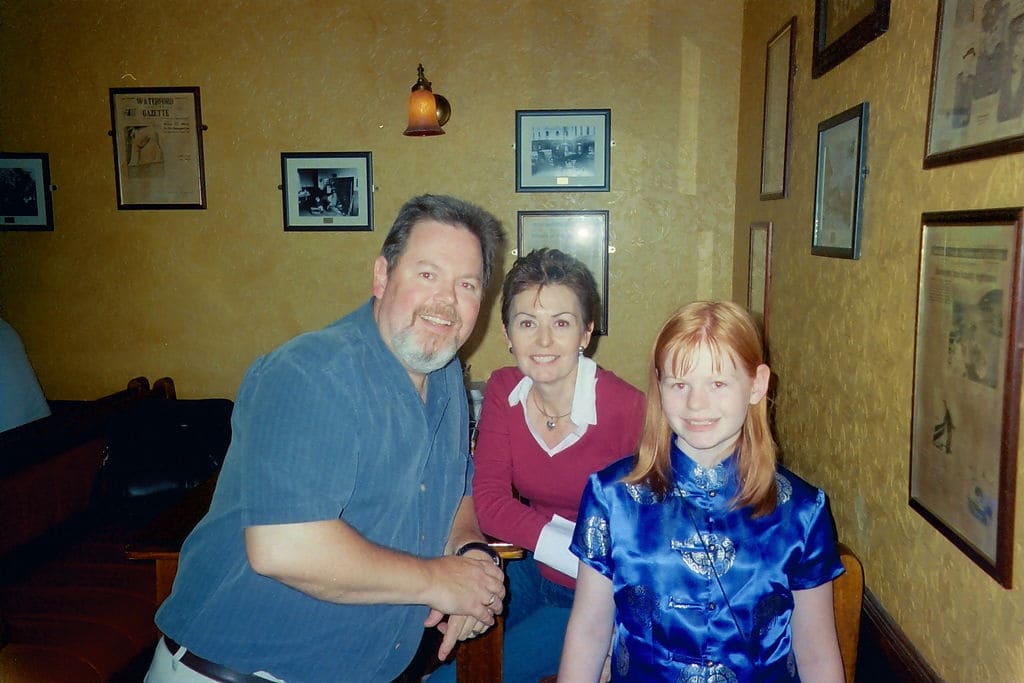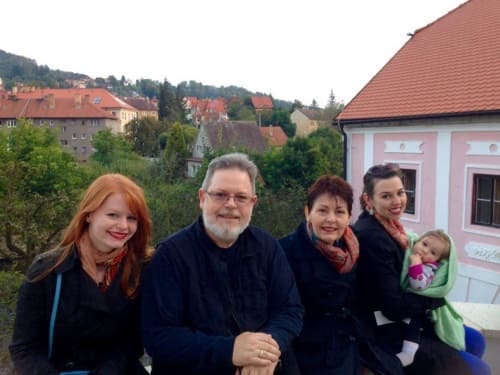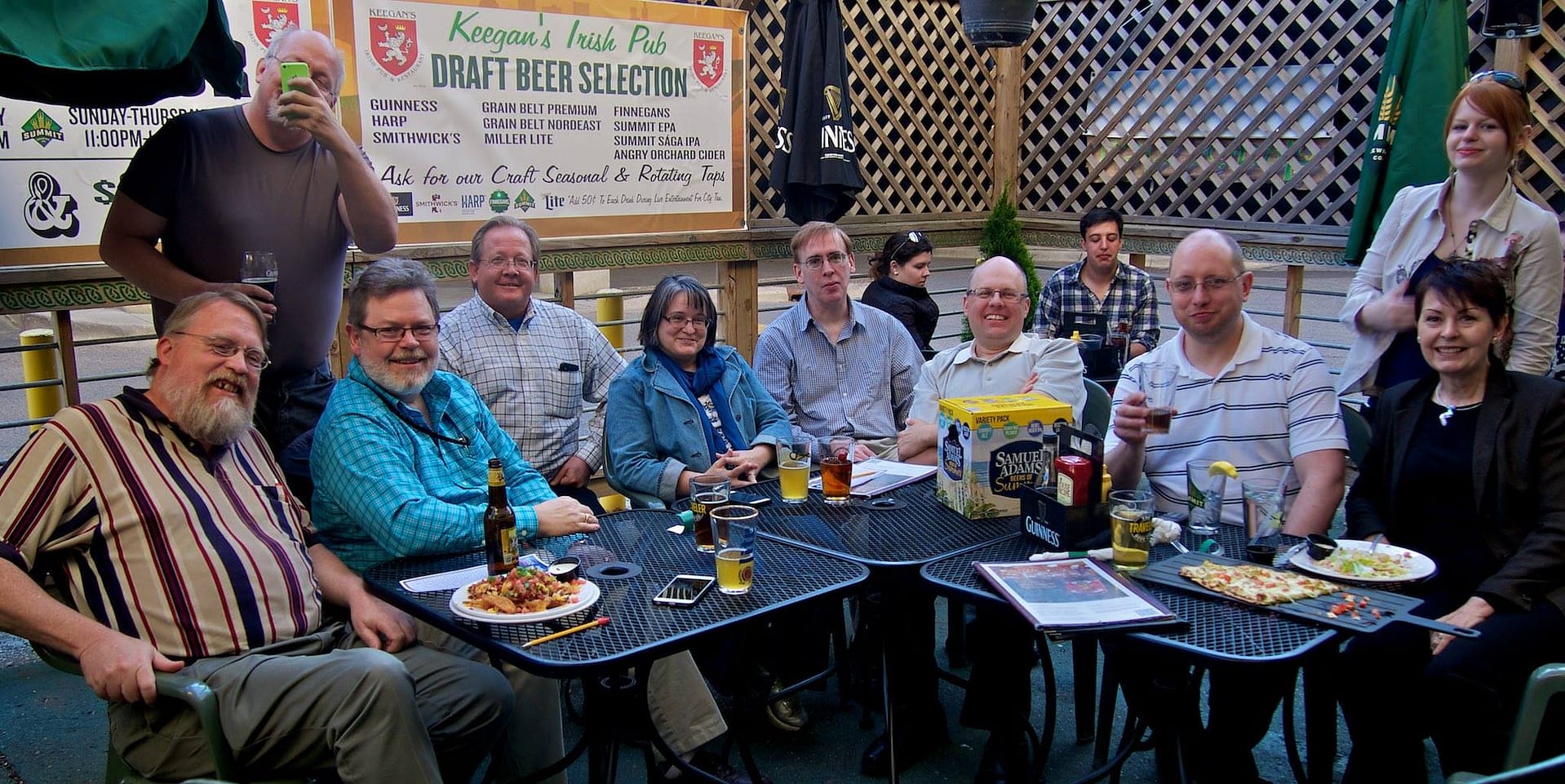I am writing today because I have incurred a debt. Not a financial debt, but a literary debt. I mean that I have told part of a story, but left out the much more interesting remainder of that story. I am remedying that omission today.
How do you respond to a miracle?
In May of 2014, I introduced you to my friend John Stewart. I also mentioned that he was recently diagnosed with ALS, or “Lou Gehrig’s Disease.” The average life expectancy of a person with ALS is two to five years after diagnosis. I am pleased to report that John is still in the world. Furthermore, much furthermore, he was undiagnosed of ALS 13 months after he was diagnosed. John is the only person I know of who has been undiagnosed from ALS after having been diagnosed with ALS.
John wrote the following in April of 2017:
“Three years ago today, April 22, 2014, my wife and I received that diagnoses, and the apparent death sentence. To say that the rest of that week was the most surreal in my life would not be an exaggeration. Faith and family, as you know, were the key pillars then and going forward, as you can see if you back through this blog. To some extent, a blunt diagnoses such as that can be extremely clarifying. “If the doctors say there is nothing man can do,” I reasoned to myself, “then that only leaves God.” Galatians 2:20 came to me: “I have been crucified with Christ; it is no longer I who live, but Christ lives in me; and the life which I now live in the flesh I live by faith in the Son of God, who loved me and gave Himself for me.” If I was as good as dead, then it truly was “no longer I who lived” and that became both my focus and the name of this blog that I started a few days after the diagnosis.
If you’ve been following along here, you’ll know that 13 months after I was diagnosed I was undiagnosed, also at the Mayo. I still had some symptoms, but I was too healthy. Since then I’ve continued the story here sporadically. There were additional miracles to report (as you can scroll down to read), but also a life to live. My youngest daughter moved to Prague in late 2015 and we flew over there for 9 weeks as she transitioned, and we returned there last fall with our oldest daughter and newest grandchild. These and many other things were blessings we could barely have foreseen while sitting in that doctor’s office 3 years ago.”
How do you respond to a miracle? Perhaps you think that John only adopted this optimistic attitude only after things started to get a little better. That is not the case. John wrote this shortly after his apparent death sentence.
“In the last couple of days I have had some bad minutes, and some very good hours. I am planning on confounding this disease [emphasis mine]. Oh, I know – it’s not unusual for folks to talk tough and brave at the onset, or whistle past the graveyard as it were. I know as well as anyone, and maybe better than most, what ALS entails. I don’t dismiss it as a lightweight, or over-estimate my own strength and resolve. In fact, if I were trusting in my own resources I’d be quivering on the floor right now. I know what the disease is and what it can do, but I also know that my God is greater, and I remember all the miraculous things I have seen Him do in my life and in the lives of others. There will be more on this – much, much more – as I go on.”
How do you respond to a miracle? I wish to explore this phenomenon. John mentioned that certain words had a special significance for him during this time. One of the words was “confound.” John shared this with me:
“You once asked me why I used the word, “confound.” I said I didn’t know, it just came to me as I was writing, and it just felt right. Later, I actually looked up the Biblical meaning, and it literally means “to close the mouths of your enemies”. To confound your Enemy (or your doctor) is to leave him speechless. I didn’t realize the full intent of my mission at the time I wrote that, but that “random” word was an important part of denying death, destruction and the loss of hope.”
Another word with particular import was “expectation.” John writes:
“As the neurologist gave us the blunt truth, describing the end stages in detail, it got a bit emotional. He apologized, and said, “I’m sorry to have to tell you this, but I want you to have the right expectation.” In the tunnel vision that was closing around me, that was a sudden light.
We had had teaching that the word “hope”, Biblically, means “expectation” (especially if you look up hope in the Webster’s 1828 dictionary on-line).
When he said “expectation”, hope is what lit up in my mind, especially in the context of Webster’s. My hope was based on an expectation that God could and would deal with this. It was therefore, a hope and not a wish.”
The 1828 Webster definition of hope is too long to quote, but it is much more than “what I would like to happen.” It includes “confidence,” “substantial evidence,” and “well-founded expectation.” I surmise this “lighting up” that John describes had something to do with what was inside John at that moment.
How do you respond to a miracle? How could it not mean that there are more things in heaven and earth than what is explained by your worldview? Doesn’t it spark your curiosity even a little bit? Doesn’t it call into question your list of things that can and can’t happen? I say it should.
The New Message from God places a relatively light emphasis on miracles. I have mentioned before that the word “miracle” is mentioned exactly twice in the 500-something pages of Steps to Knowledge. It is as if the New Message from God is trying to redirect my focus away from seeking miracles and dispensations. It seeks to redirect my focus toward preparing to respond to Knowledge, the deeper spiritual intelligence that God has placed within each person. Step 28 of Steps to Knowledge contains one of the two mentions of “miracle.”
“I accept the miracles of my life as a demonstration of the presence of Knowledge and I give myself now to cultivate that which is of the greatest good within myself to be given to the world.”
How do you respond to a miracle? A little humility and wonderment wouldn’t hurt. John will most likely disagree with me on this, but I say that John knew something in that moment with the doctor. I am grateful that he is in the world and well and sharing his testimony. I am pleased to have been with him at this celebration in 2015 of his sisongaid (undiagnosis). I am pleased to have told this part of his story.
Welcome to Mystery of Ascension! We are students and advocates of the the New Message from God. We are members of a worldwide community. We seek to assist the world in successfully navigating difficult times ahead. We seek to assist the world in successfully emerging into a greater community of intelligent life. You will also find some poetry. Find out more about us here. Contact us here.




